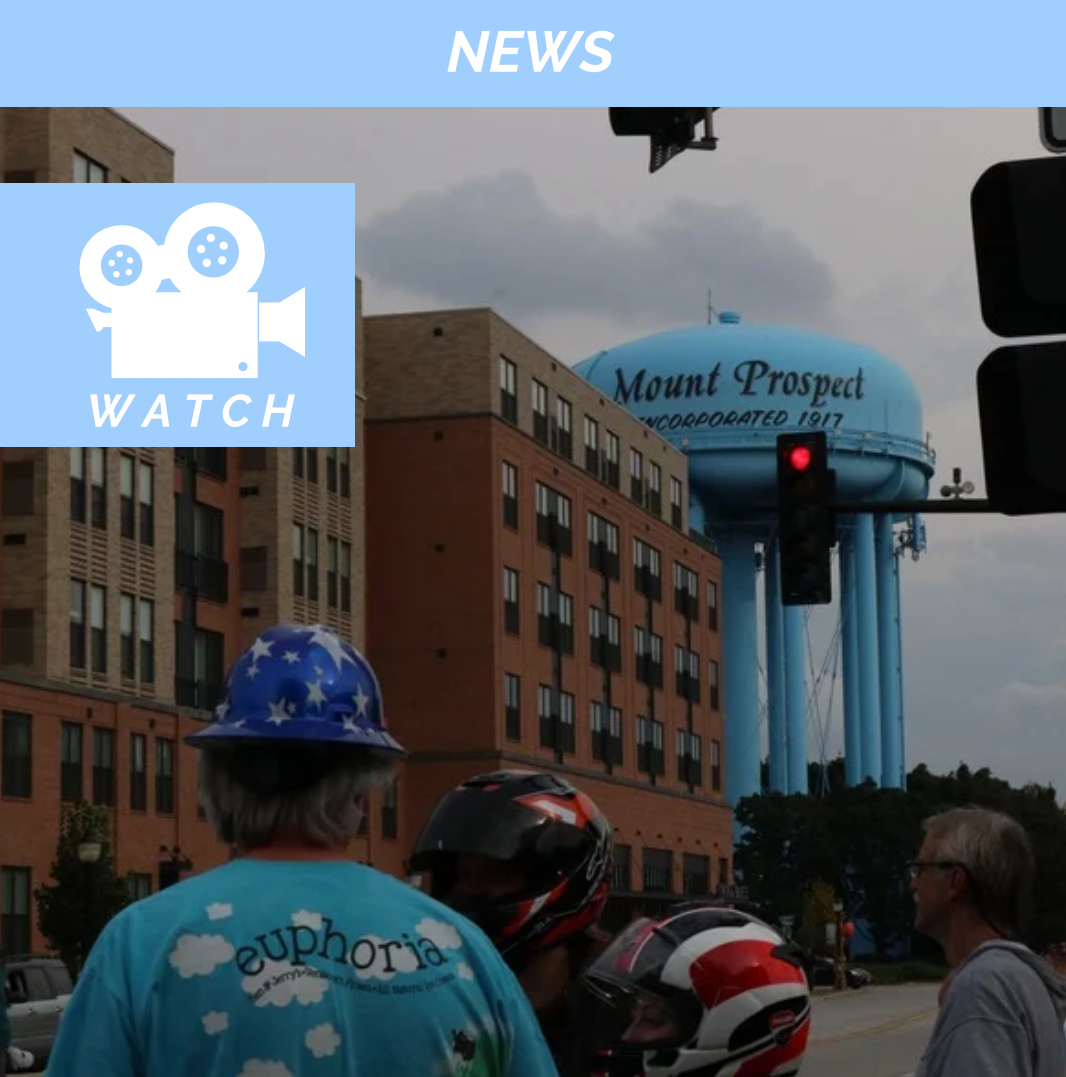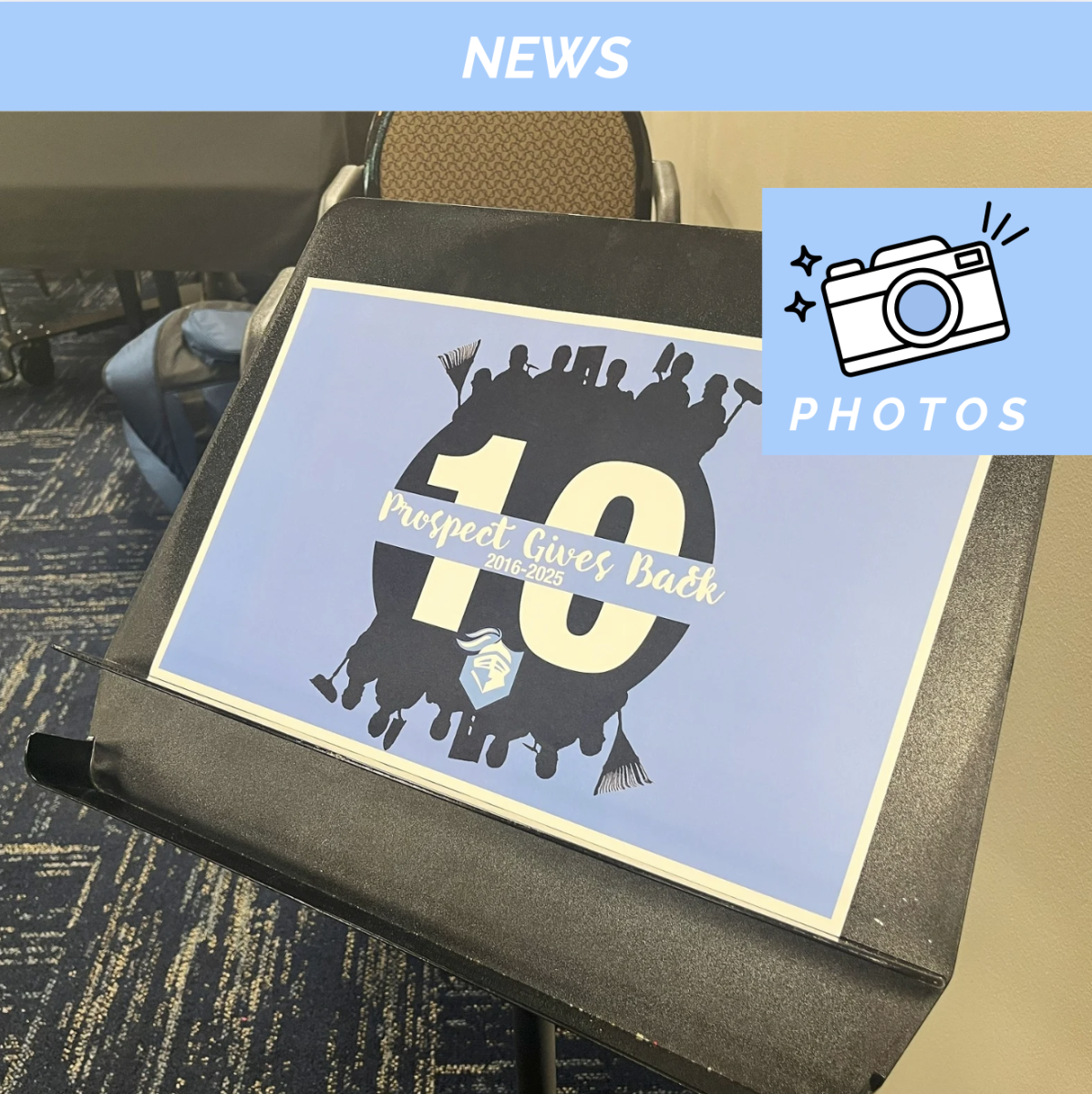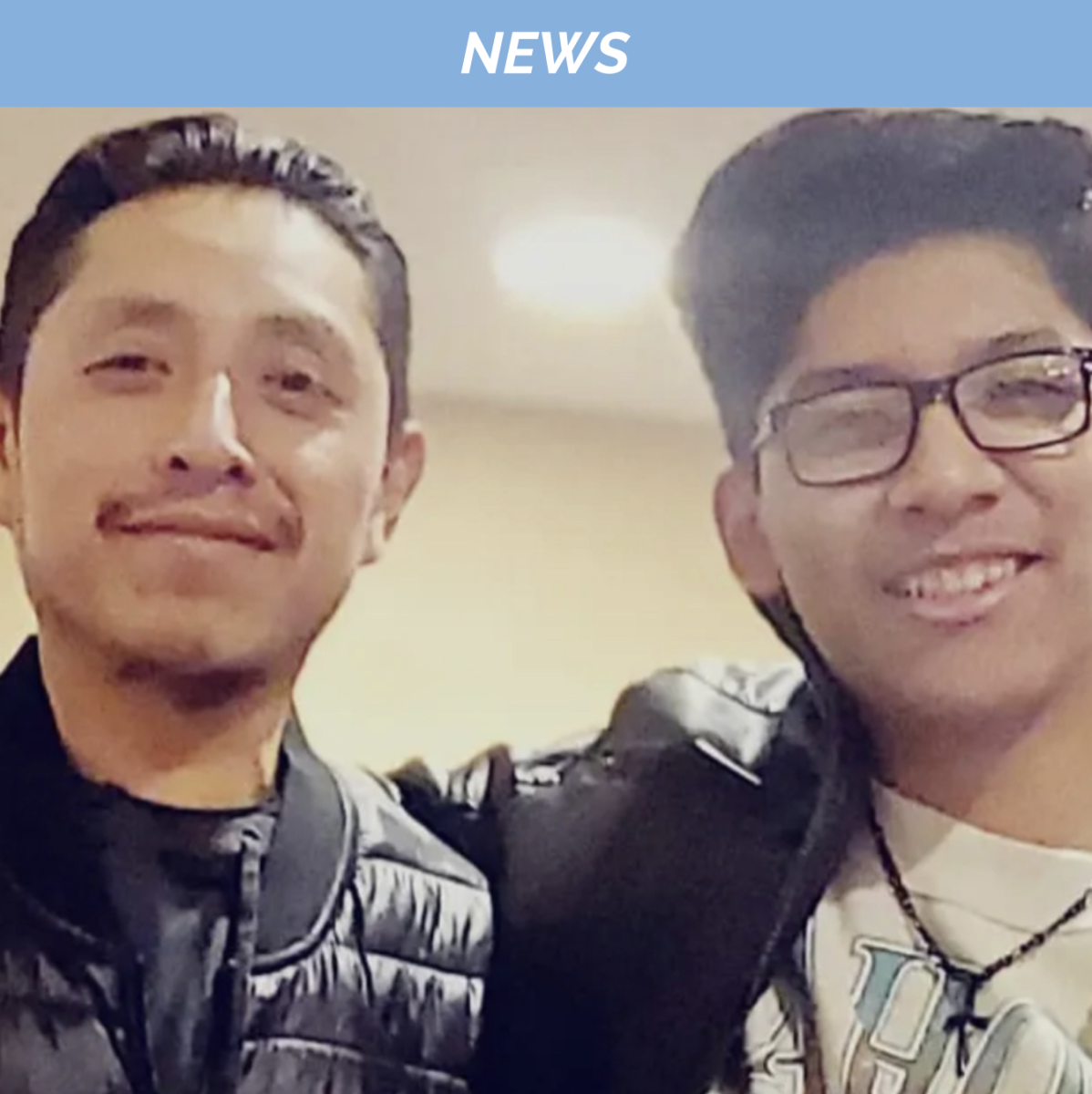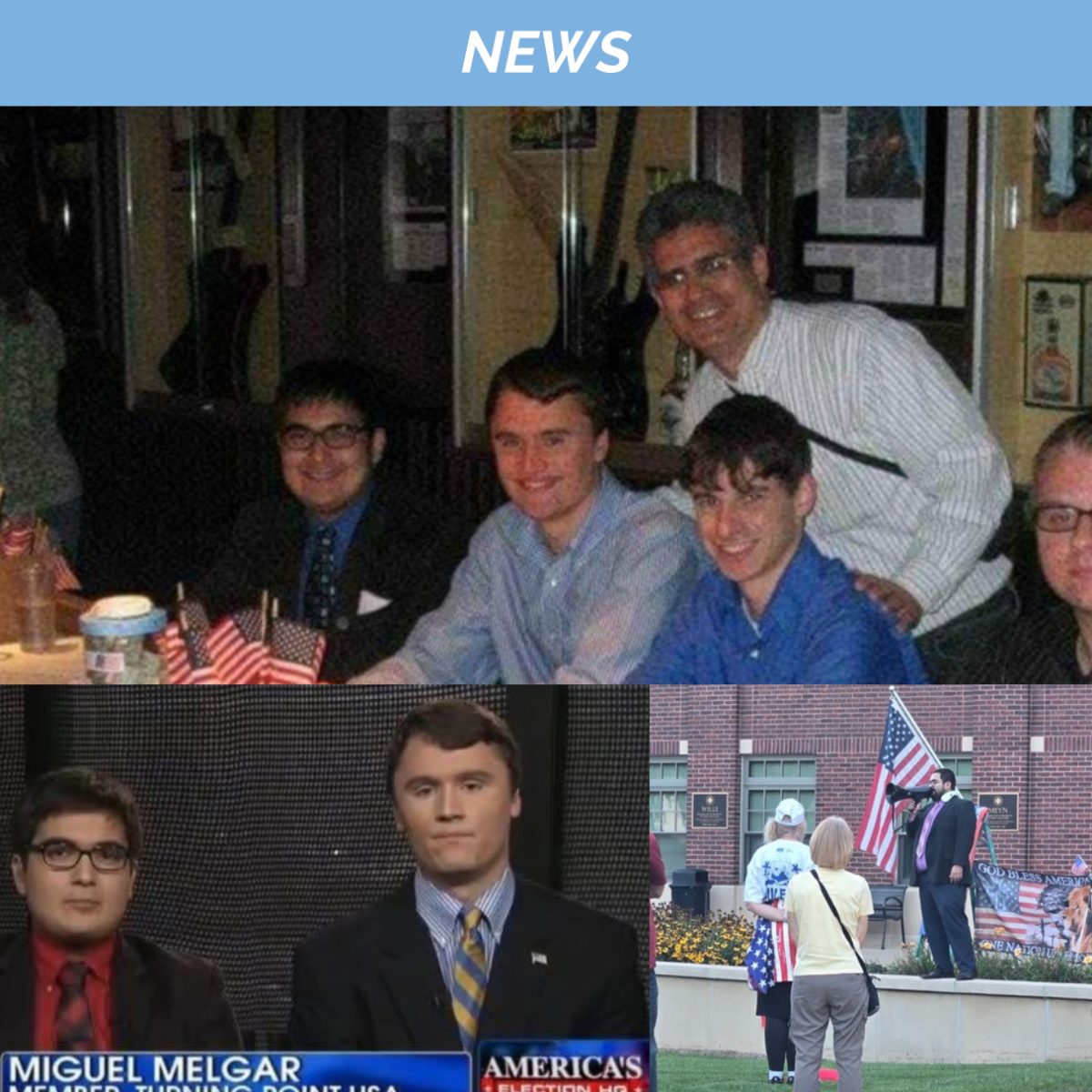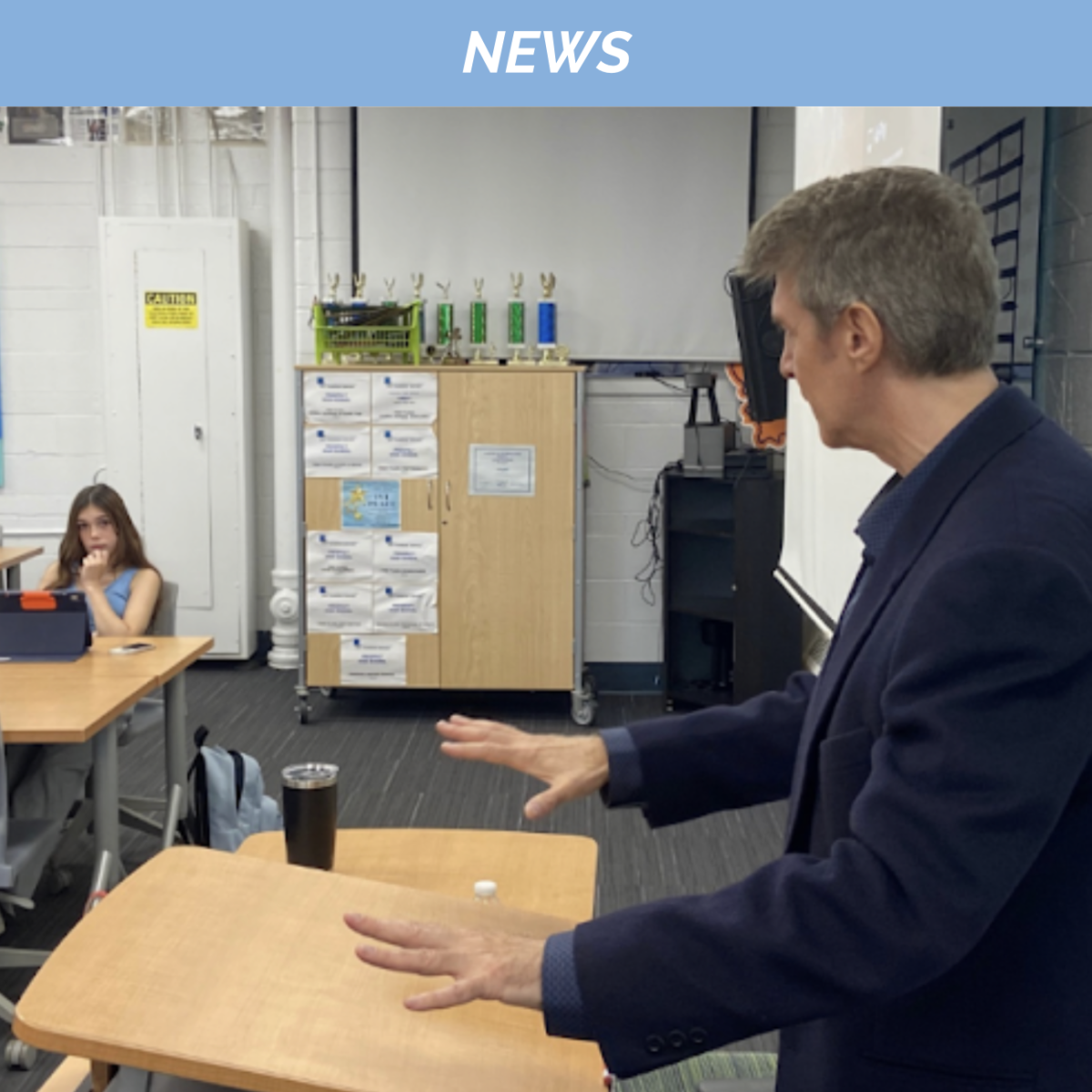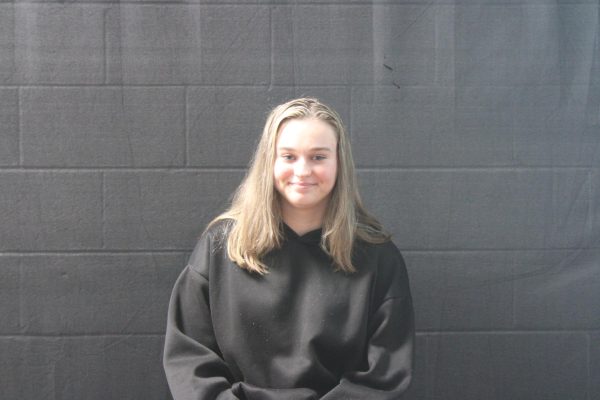Juniors Aspen Dittmer and Norah Knight were shocked when they came to school in September of 2023 to find out that the environmental club had disbanded. They found out after asking the previous sponsor when the next meeting would be, only for him to tell them that he stepped down from being a sponsor after the club leaders graduated.
Determined to bring the club back, Dittmer and Knight emailed the science division in hopes of finding a new sponsor and starting the club again. Eventually, Lynsey Panek, an Honors Chemistry, Biology, and Medical Terminology teacher, met with Dittmer and Knight to talk about what meeting schedules would be like and what they would accomplish. After having a pitch meeting, the environmental club was back in business.
As the two club leaders, Dittmer and Knight plan most of their events and are determined to help anyone willing to be more environmentally friendly. In their club, they teach activities they practice in their own lives, like cooking vegan food and mending their own clothes.
Their meeting dates depend on what days everyone can be there, but they do their best to try and spread the word about times, often posting information on their Schoology page.
“I feel like our main goal is to … spread awareness about environmental issues … through word of mouth,” Knight said. “A lot of the stuff that we do is mostly smaller projects on reducing waste … because that’s something accessible that we can do as a high school.”
Dittmer got into an environmentally friendly mindset through visits with her relatives in Colorado. Since they live in wooded parts, she grew up going there, which helped Dittmer develop an appreciation for nature.
“I feel like with that appreciation, [there] also came a desire to protect and conserve [the environment],” Dittmer said.
One of Dittmer’s major contributions to decreasing the effects of climate change has been going vegan for over three years.
Switching to veganism wasn’t that big of a change for Dittmer because she already liked fruits and vegetables. Additionally, due to an increase in the presence of plant-based foods, there are plenty of vegan meat substitutes at her disposal, such as tofu and nut milk, in almost any grocery store. According to Statista, the global plant-based food market is expected to grow, too. By 2025, the market is estimated to reach $77.8 billion, meaning that more options will be on the shelves for aspiring vegans.
Dittmer explained one common misconception about being vegan: that they will shame others for eating meat or constantly bring up the fact that they are vegan to gain people’s attention. Another misconception, she explained, is that vegans avoid meat mainly to protect animals;, that isn’t the case for Dittmer.
“That’s just not how everyone is like,” Dittmer said. “I do it more for environmental reasons [such as the methane being released from the livestock] than animal rights reasons.”
Although Dittmer supports animal rights, her main goal is to protect the environment, so she tries to educate herself on the best ways to do so.
Dittmer learned most of what she knows from documentaries and books. One book she recommends is “The Uninhabitable Earth: Life After Warming” by David Wallace-Wells. She said the book brought attention to the many ways people are destroying the environment, such as how much carbon most people use daily.
The average person produces about four tons of carbon dioxide each year, according to the Center for Science Education.
For Knight, her biggest motivator to live an environmentally friendly lifestyle is her parents. Knight’s mom is a pescatarian, which is a type of diet that is plant-based, according to WebMD. Additionally, her dad is vegetarian and has an interest in learning about native plants. His interest in native plants extended beyond just learning about them, though. When Knight was in fifth grade, he spent a couple of weeks building a pond in their backyard and surrounded it with native plants.
This, along with her father reading about it, has sparked Knight’s interest in trying to start a native plant garden at Prospect.
“It’d be really nice because it would sequester a lot of carbon,” Knight said.
Knight’s advice to start living a sustainable life is to keep an open mind and think about one’s own personal impact on the planet.
“I feel like everyone thinks that, ‘Well, I’m just one person; there’s billions of people, and it doesn’t really matter,’” Knight said. “But I feel like it’s important just to try and remember that your life does really have a big impact on the planet.”
While finding devoted members is hard, they have had quite a few people show up to environmental club meetings through the activity fair and morning announcements; still, only a handful come back. However, they have one devoted member, senior Amelia Fink.
When Fink scrolled through the list of clubs on the Prospect club webpage during her junior year, she came across the environmental club. Since she was starting to take an interest in living in a more environmentally conscious way, she joined.
Originally, Fink joined the club when Higdon was the sponsor. At the time, the group was less student-run. There were student leaders, but it was mostly Higdon planning activities and projects, according to Fink.
Since the switch, the club has done a lot more projects, such as recycling bags into yarn and a recycling exchange. They also plan on doing much more in the near future, including p to reduce methane around the school.
Fink enjoys the new, hands-on approach of the club. She especially enjoyed a project where they cleaned local woods.
“Going out and cleaning the woods is just like a fun thing we can do with our friends,” Fink said. “When we were doing our cleanups, we gossiped so much and were helping the earth while we did it.”
Since joining the club, Fink has worked a lot more on establishing sustainable practices into her daily life, like recycling more, growing her own tomatoes and using her own reusable water bottle instead of disposable plastic ones.
Fink said she loves how she can make a positive impact on the Earth while having fun and making new friends.
“It’s very friendly,” Fink said. “Even if it’s just me and the two club leaders, I’m not the bestest of friends with them, but when I’m there, I can talk with them, [and] I can joke with them … It’s a soft, fun atmosphere.”
The environmental club aims to be a judgment-free zone and is open to all students at Prospect regardless of experience level, according to Knight. Its purpose is to help students learn about their impact on the Earth and how they can make small alterations in their lives to downsize it.
“We’re trying to brand it as a very accessible, nonchalant way to learn more about the environment and bring awareness to the topic,” Dittmer said.




